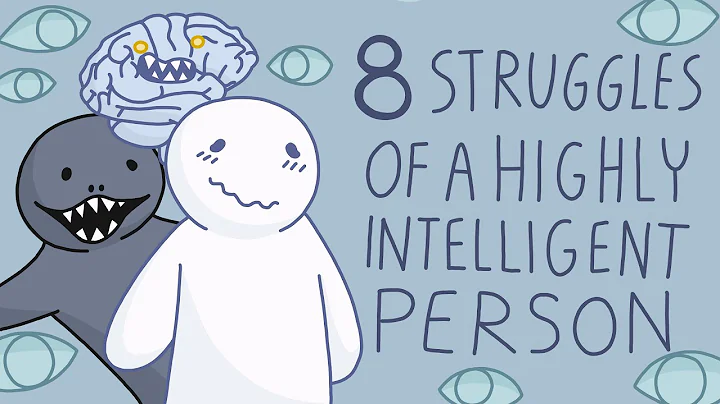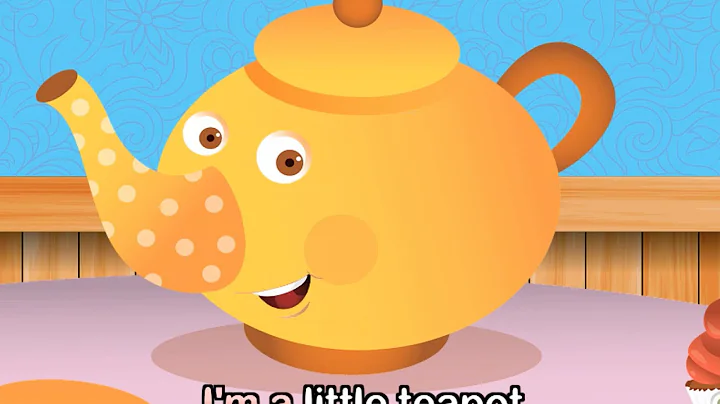During the growth period of children, if your soul does not grow, you will become very smart, but no matter how good you are at studying, you will have to make up for it one day. Where is your soul, you will go back to find your own soul.
- International Sandbox Game Master Gao Lan
Author: Warm Heart
When I arrived at the door of my house two days ago, I saw my neighbor driving the children out, and he was still saying: "Since you love to play so much, come back after you have had enough. Home." When
saw this, I immediately asked why.
It turns out that the boy was playing at home. When it was time to do homework, his mother reminded him, but the boy said "play for another 5 minutes."
As a result, he didn't do his homework for another half an hour.
The neighbor said: "I reminded him for almost half an hour. I promised him five minutes, but it turned out that he was still playing for almost half an hour. Are you angry or not?"
Looking at this scene, I felt very deeply, because I have encountered this scene countless times.
We have found that today’s children especially love to bargain.
Sometimes, when we stop letting children play, we always wait for the child to say "I want to play for five more minutes."
At this time, parents are always struggling between compromise and rejection.
Compromise, but it will easily spoil the child; refuse, and it will easily arouse the child's resistance.
In fact, after children are 3 years old, their sense of independence supports their " what they want in their hearts, just go for it".
Faced with children who keep making demands, mothers’ different answers determine the children’s future lives.
01
Refusal parents always say "absolutely not allowed"
I once met a mother and daughter.
To save trouble, the mother gave her daughter the mobile phone to play with.
When the mother remembered to take the phone back, her daughter refused to give it to her and said, "I'll play with it for a while longer."
The mother was angry at the time and immediately took the phone away and said, "No, you've been playing for so long, don't push yourself too far. "
At that time, the daughter fell to the ground and rolled around, and was carried away by her mother.
Faced with a child's request, such a strong refusal is not a good thing for the child.
Psychologist Dr. Bruce Glarang said:
Frequent rejection of children is the most inappropriate way of rejection; children seem to be pushed out of the door and will feel aggrieved or even angry.
When children always hear words such as "can't, no", they will feel oppressed.
Parents' non-negotiable attitude will expose three problems:
Ignoring the child's emotions, ignoring the child's needs, and not paying attention to the child's inner feelings.
Such a rejection method is more about parents venting their emotions and choosing to control their children, so it is easy to develop a rebellious mentality.
The more forbidden the child is, the more he wants it.
When a child's request is rejected, there is a feeling of being deprived of his wishes, which will be hidden deep in the heart and make the child grieve.
There is such an experiment in psychology:
They gave research subjects 22 different tasks, only allowing them to complete half of the tasks, and not letting them complete the other half.
After the experiment, let them immediately recall what they just did.
As a result, 68% of those who did not complete the task were recalled; while only 43% of those who completed the task were recalled.
Experiments have proven that unfinished tasks will be more memorable.
It shows that when a child's needs are not met, it may stimulate his deeper desire for this matter.
When a child says "I want to play for a few more minutes", he may be speaking a "language", which is "I haven't played enough yet".
The child's request proves his inner need.
Once children are ruthlessly rejected by their parents, it will make children want to play more and be unable to devote themselves to other things. Instead, they will do whatever it takes to achieve their goals.
Rejection will stimulate the child's suppression gap more thoroughly and deeper.
02
Rejected children end up becoming "sensitive inferiority complex"
In fact, when children are young, more of their behaviors reflect their own emotions and needs.
For example, if he hasn't played enough, he will say "I want to play for another 5 minutes" without considering that he still has a lot of homework.
If you want to eat fried chicken, you don’t care whether you spend more or less...
But many parents don’t understand this and always refuse to satisfy their children, but they never thought that it would become a trigger for their children to have low self-esteem.
saw such a story on the Internet.
A Chinese-American has suffered from severe rejection sensitivity since he was a child.
Because when he was a child, he saw a canned orange in the supermarket and asked his mother to buy it for him.
At that time, his mother said: "The money from this can is worth a meal for us."
So he didn't get his wish that day.
Several times later, when he encountered the same thing, his mother rejected him with the same words.
Once, his father secretly took him to eat fried chicken, but his mother scolded him. She also yelled at his father: "You spoil him for everything. You will get better when you grow up."
Later, when he saw his classmates eating ice cream, I dare not ask my parents for it, because once they ask, they will be rejected and lectured.
When he reached high school, his mother finally wanted to buy him his favorite Gaara backpack. Although he wanted it very much, he still refused: "This is too expensive, so I don't want it."
In fact, it was not that he didn't want it. But don't dare to ask for it.
Children who are always rejected will subconsciously form a mental state of "I am not good enough and I don't deserve it".
Such feelings will make him a "sensitive person with low self-esteem."
Some psychologists first proposed a term called "rejection sensitivity" :
This type of people will have excessive emotional and behavioral reactions to others' rejection, and they are always anxious in anticipation of rejection. The formation of rejection-sensitive people is related to early growth experience, and early rejection trauma is inevitably related to rejection-sensitive people.
is just like a Chinese netizen, because he has been rejected too much, which makes him afraid of rejection, so he would rather not own it.
He said:
When he grew up, he became financially independent and bought a lot of things that he did not get in childhood. No matter how many things he had, he always felt in his heart that "I shouldn't have them."
Once rejection becomes the norm for a child, a mentality develops: To gain acceptance and support from others, one must endure rejection.
will always consider the needs of others and will not fight for his own interests.
Therefore, they not only lose the desire to speak, but also have a sense of inner deprivation, making them live in inferiority forever.
03
To be kind to your children,
you should often say "Okay, mom knows"
American psychologist Diana Baumrind once defined four parenting styles based on research on children's behavior: authoritarian, authoritarian, Indulgent, authoritative and neglectful. The parenting style of
combines "strictness" with "love" and is considered the most reasonable and easiest for children to accept.
Authoritative parents respect their children's personality and interests, and usually replace "no" with "can" when it comes to their children's requests.
This kind of education is the wisest. It includes respect in principles and shapes principles for children in respect.
There is a girl on Zhihu who said that she has liked ballet since she was a child.
put a lot of energy and money into raising her parents.
She has been practicing ballet almost every day since she was 5 years old, but she was very playful at that time.
was envious when she saw her companions playing.
There were several times when she didn’t want to train anymore, so she begged her mother to let her go out to play.
’s mother did not reject her, but called the dance teacher to ask about her training.
At that time, the teacher recognized her very much and praised her in front of her mother, so her mother said to her:
I know you have been working hard during this period. You can go out to play if you want, but don't forget your original intention because of playing.
She knew that her mother was reminding her to have a sense of proportion.
Later, she trained harder in dance. Every time she was tired, her parents never stopped her from relaxing.
Because her parents gave her the same "freedom", she worked harder every time she practiced.
Later, she was admitted to the dance academy and suddenly understood why her parents never refused her request.
She said:
Being rejected will deflect your original intention. Only when you are allowed to try "desire" can you know what you want.
Yes, children who have been fully satisfied with have a particularly strong sense of reality.
Too many examples in life tell us that strong parents will only attract rebellion from their children.
On the other hand, those children who have experienced "indulgence" in childhood will integrate themselves and discover and find their truest selves.
But this does not mean that parents should compromise if their children ask for it.
A parenting expert once shared that you should say "yes" when rejecting your child.
She preached:
Once, she kept reminding her daughter to do her homework. Her daughter was watching a cartoon and said, "I want to watch another episode."
At that time, she said: "Okay, mom knows you haven't seen enough."
Then, she did two things:
The first thing was to make an appointment with her daughter on the final time, and then watch again after both parties reached an agreement. final episode.
then did the second thing. She put down what she was doing, moved a stool and sat next to her daughter to watch with her.
At this time, the daughter seemed absent-minded. She looked at her mother from time to time while watching cartoons. When the time was up, she immediately turned off the TV.
Because of this incident, she made two suggestions to parents:
1) When children have needs, catch their emotions
Never confront the child when he makes a request. Be sure to say "Okay, Mom knows."

picture
This sentence can reduce the child's defensiveness. It also contains a "sense of identity" and a "sense of seeing", making the child feel that we are taking care of his emotions.
2) While meeting the child's needs, accompany him to complete the task
When the child asks to "watch for five more minutes," the effective action for parents to meet the child's needs is to "accompany him."
This behavior makes the child feel that "Mom respects me."
Accompanying him will help the child develop an inner sense of security while maintaining his own principles. A child like
will be more confident, because being allowed to express his needs will stimulate his expressiveness and decision-making ability, making him a confident and independent person.
Children's needs need to be treated kindly. The "gentle but firm" love of parents is the best growth for children.
04
International sandbox game master Gao Lan said:
During the growth period of children, if the soul does not grow, you will become very smart, but no matter how good you study, you will have to make up for it one day. Where is your soul, you will go back to find yourself. soul.
Spiritual growth is to make children’s hearts full.
Its main "ingredients" are: is allowed, respected and noticed.
Children are inherently independent. The more parents prevent certain things, the easier it is for children to have desires.
You might as well change the angle and allow the child to try, so that after experiencing indulgence and failure, the child can find his true soul.
Good parents will never be the promoters of their children's growth; rather, they will be the planners behind their children's growth and "contribute" to their children's future.
-END-








![[CLASSIFIED] "Only a Few People On Earth Know About It" - DayDayNews](https://i.ytimg.com/vi/PqMZfr3wMHE/hq720.jpg?sqp=-oaymwEcCNAFEJQDSFXyq4qpAw4IARUAAIhCGAFwAcABBg==&rs=AOn4CLDHW1n1MwmOOaE9AAJT2IpOFQZUtA)












